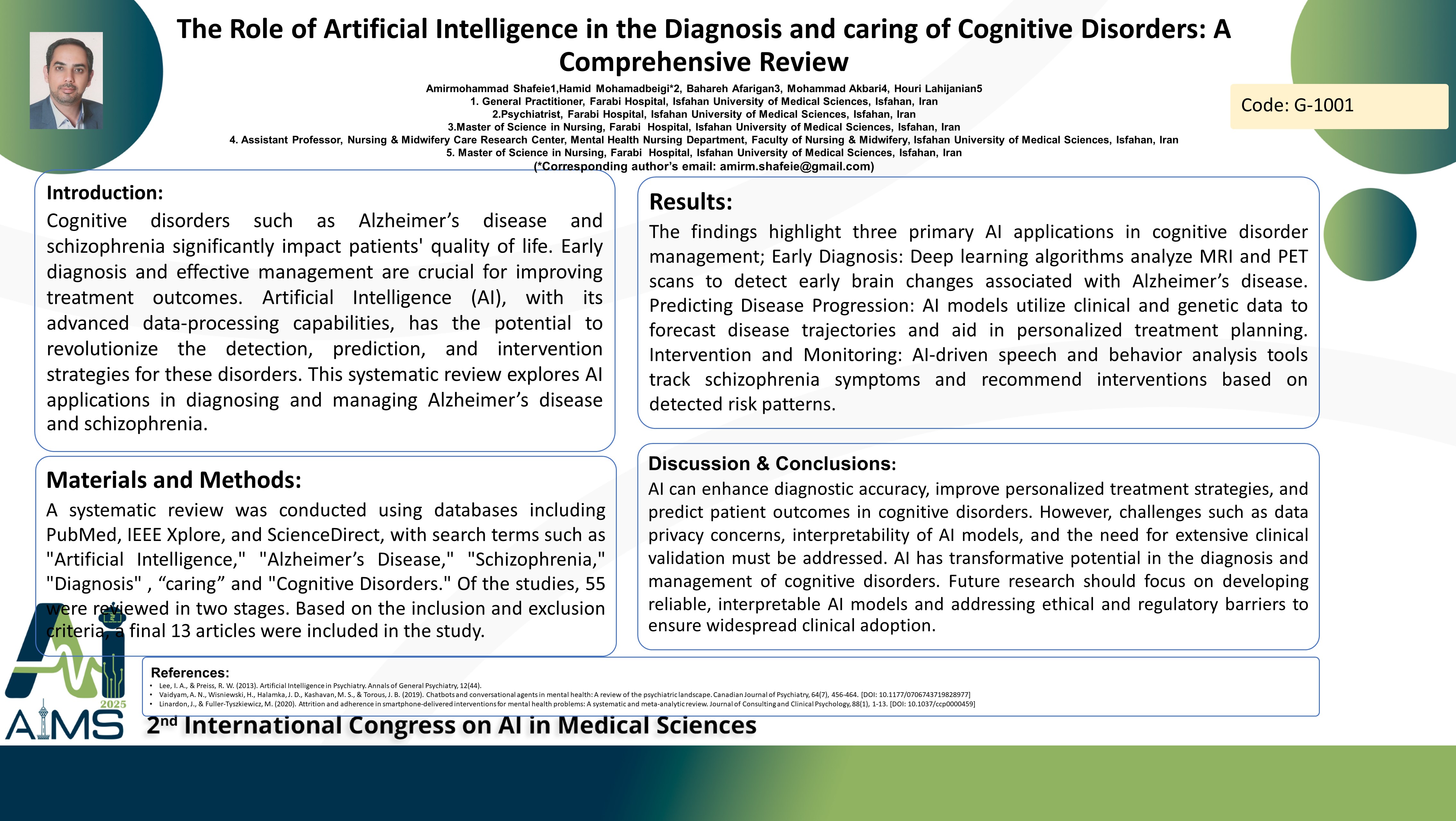نقش هوش مصنوعی در تشخیص و مراقبت از اختلالات شناختی: یک مرور جامع
کد: G-1495
نویسندگان: Hmid Mohamadbeigi * ℗, Amirmohammad Shafeie, Bahareh Afarigan, Mohammad Akbari, Houri Lahijanian
زمان بندی: زمان بندی نشده!
برچسب: پردازش سیگنال های پزشکی
دانلود: دانلود پوستر
خلاصه مقاله:
خلاصه مقاله
Background: Cognitive disorders such as Alzheimer’s disease and schizophrenia significantly impact patients' quality of life. Early diagnosis and effective management are crucial for improving treatment outcomes. Artificial Intelligence (AI), with its advanced data-processing capabilities, has the potential to revolutionize the detection, prediction, and intervention strategies for these disorders. This systematic review explores AI applications in diagnosing and managing Alzheimer’s disease and schizophrenia. Methods: A systematic review was conducted using databases including PubMed, IEEE Xplore, and ScienceDirect, with search terms such as "Artificial Intelligence," "Alzheimer’s Disease," "Schizophrenia," "Diagnosis" , “caring” and "Cognitive Disorders." Of the studies, 55 were reviewed in two stages. Based on the inclusion and exclusion criteria, a final 13 articles were included in the study. Results: The findings highlight three primary AI applications in cognitive disorder management; Early Diagnosis: Deep learning algorithms analyze MRI and PET scans to detect early brain changes associated with Alzheimer’s disease. Predicting Disease Progression: AI models utilize clinical and genetic data to forecast disease trajectories and aid in personalized treatment planning. Intervention and Monitoring: AI-driven speech and behavior analysis tools track schizophrenia symptoms and recommend interventions based on detected risk patterns. Discussion: AI can enhance diagnostic accuracy, improve personalized treatment strategies, and predict patient outcomes in cognitive disorders. However, challenges such as data privacy concerns, interpretability of AI models, and the need for extensive clinical validation must be addressed. AI has transformative potential in the diagnosis and management of cognitive disorders. Future research should focus on developing reliable, interpretable AI models and addressing ethical and regulatory barriers to ensure widespread clinical adoption.
کلمات کلیدی
Artificial Intelligence, Alzheimer’s Disease, Schizophrenia, Cognitive
